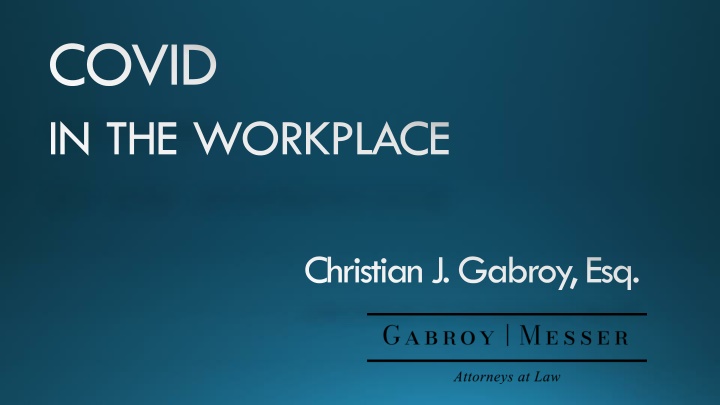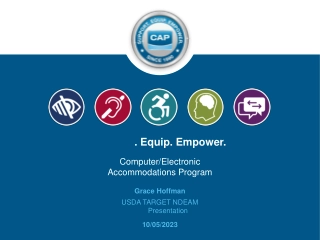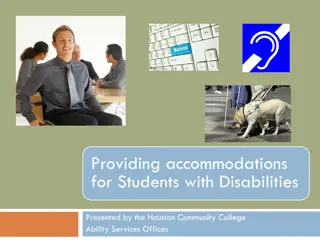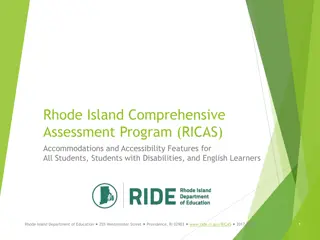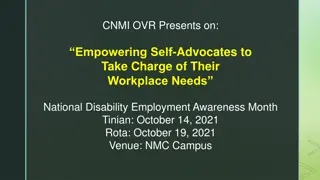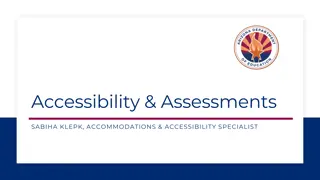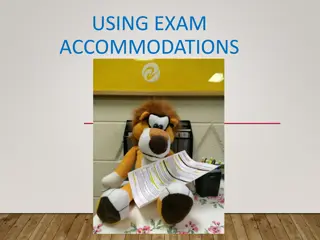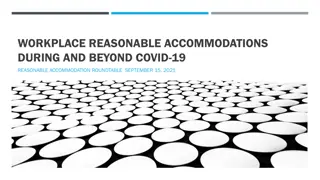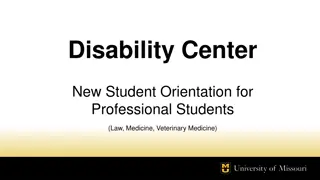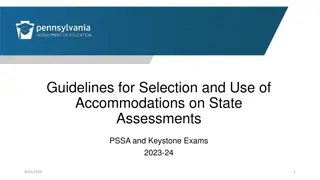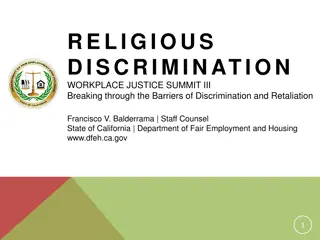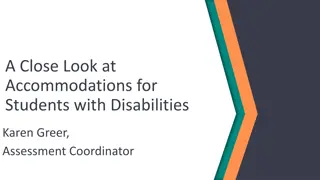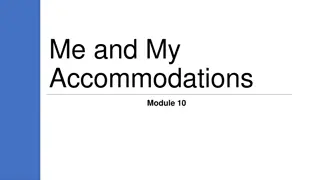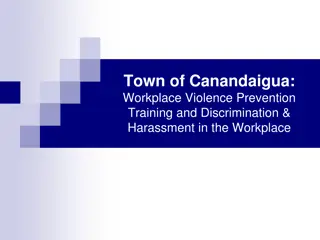COVID-19 Workplace Regulations and Religious Accommodations
In the workplace, employers may mandate vaccines but must provide religious accommodations. Understanding Title VII and the Americans with Disabilities Act is crucial for navigating these regulations effectively.
Download Presentation

Please find below an Image/Link to download the presentation.
The content on the website is provided AS IS for your information and personal use only. It may not be sold, licensed, or shared on other websites without obtaining consent from the author.If you encounter any issues during the download, it is possible that the publisher has removed the file from their server.
You are allowed to download the files provided on this website for personal or commercial use, subject to the condition that they are used lawfully. All files are the property of their respective owners.
The content on the website is provided AS IS for your information and personal use only. It may not be sold, licensed, or shared on other websites without obtaining consent from the author.
E N D
Presentation Transcript
COVID IN THE WORKPLACE Christian J. Gabroy, Esq.
Can Employers Mandate Vaccines? [T]he board of health of a city or town if, in its opinion, it is necessary for the public health or safety shall require and enforce the vaccination and revaccination of all the inhabitants thereof and shall provide them with the means of free vaccination. The challenges posed by a global pandemic do not allow a federal agency to exercise power that Congress has not conferred upon it. At the same time, such unprecedented circumstances provide no grounds for limiting the exercise of authorities the agency has long been recognized to have. Because the latter principle governs in these cases, the applications for a stay presented to Justice Alito and Justice Kavanaugh and by them referred to the Court are granted. - Jacobson v. Massachusetts, 197 U.S. 11 (1905) - Biden v. Missouri, 142 S.Ct. 647 (2022)
Religious Accommodations Title VII, 29 CFR Part 1605
Religious Accommodations Sincerely held belief Generally, under Title VII, an employer should proceed on the assumption that a request for religious accommodation is based on sincerely held religious beliefs, practices, or observances. However, if an employer has an objective basis for questioning either the religious nature or the sincerity of a particular belief, the employer would be justified in making a limited factual inquiry and seeking additional supporting information. An employee who fails to cooperate with an employer s reasonable requests for verification of the sincerity or religious nature of a professed belief, practice, or observance risks losing any subsequent claim that the employer improperly denied an accommodation. https://www.eeoc.gov/wysk/what-you-should-know-about-covid-19-and-ada- rehabilitation-act-and-other-eeo-laws#L
Religious Accommodations Undue hardship An employer will need to assess undue hardship by considering the particular facts of each situation and will need to demonstrate how much cost or disruption the employee s proposed accommodation would involve. An employer cannot rely on speculative or hypothetical hardship when faced with an employee s religious objection but, rather, should rely on objective information. Certain common and relevant considerations during the COVID- 19 pandemic include, for example, whether the employee requesting a religious accommodation to a COVID-19 vaccination requirement works outdoors or indoors, works in a solitary or group work setting, or has close contact with other employees or members of the public (especially medically vulnerable individuals). Another relevant consideration is the number of employees who are seeking a similar accommodation, i.e., the cumulative cost or burden on the employer. https://www.eeoc.gov/wysk/what-you-should-know-about-covid-19-and-ada- rehabilitation-act-and-other-eeo-laws#L
Americans with Disabilities Act 42 U.S.C. 12112
Reasonable Accommodations Under the ADA, reasonable accommodations are adjustments or modifications provided by an employer to enable people with disabilities to enjoy equal employment opportunities. If a reasonable accommodation is needed and requested by an individual with a disability to apply for a job, perform a job, or enjoy benefits and privileges of employment, the employer must provide it unless it would pose an undue hardship, meaning significant difficulty or expense. An employer has the discretion to choose among effective accommodations. Where a requested accommodation would result in undue hardship, the employer must offer an alternative accommodation if one is available absent undue hardship. https://www.eeoc.gov/wysk/what-you-should-know-about-covid-19-and-ada- rehabilitation-act-and-other-eeo-laws#L
Reasonable Accommodations Interactive Process The interactive process requires communication and good-faith exploration of possible accommodations between employers and individual employees, and neither side can delay or obstruct the process. Humphrey v. Memorial Hospitals Ass n, 239 F.3d 1128, 1137 (9th Cir. 2001) [T]he reasonable accommodation process requires an individualized case- by-case assessment. Vawser v. Fred Meyer, Inc., 19 F. App'x722, 724 (9th Cir. 2001)
Additional Considerations FMLA, 29 U.S.C. 2611 Return to Work Act, NRS 613.800, et seq. Bezav. Boyd Gaming Corporation, Case No. A-21-845753-C Debra Adimeyet al. v. Station Casinos LLC, Case No. A-22-850394-C Retaliation, Discrimination & Harassment FLSA (modified work schedules, remote work, hybrid etc.) Political Affiliation Discrimination/Retaliation, NRS 613.040
Questions? Christian J. Gabroy, Esq. May 17, 2022
